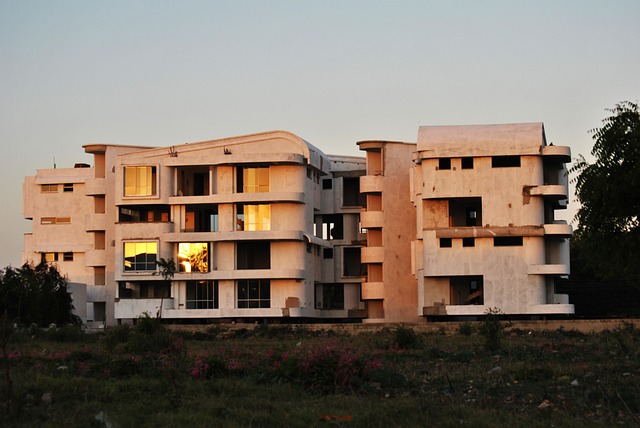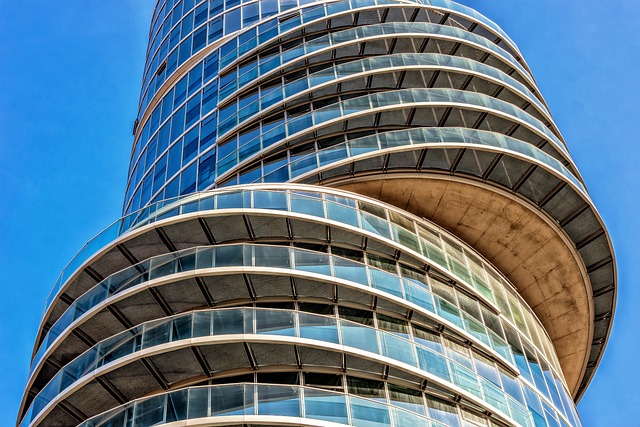Executive Condominiums (ECs) in Singapore offer a housing solution for younger couples who are not yet eligible for public housing but wish to enter the property market. These units blend characteristics of both public and private housing, providing larger spaces and premium facilities similar to private condominiums while being offered at more affordable prices. To own an EC, buyers must meet specific criteria set by the Housing & Development Board (HDB) and National Housing Board (NHB), including a five-year minimum occupation period (MOP) and subletting restrictions post-purchase. After ten years of occupancy, ECs can be privatized, allowing them to be sold on the open market as private condominiums after meeting certain conditions and obtaining necessary approvals. Prospective buyers should research the legal framework governing ECs thoroughly, including the financial eligibility requirements such as income ceilings and the Total Debt Servicing Ratio (TDSR), and the implications of en-bloc sales under the Sale of Collective Sale of Strata Titles (En Bloc Sales) Act. It's also crucial to stay updated on the changing eligibility criteria for EC applications, as they are subject to HDB schemes and policies, to ensure a compliant and well-informed transaction in Singapore's property market.
Exploring the nuanced landscape of property ownership in Singapore, this article sheds light on the unique aspects of Executive Condominiums (ECs). Prospective buyers must navigate a distinct set of legal considerations to successfully acquire and reside in an EC. From eligibility criteria at purchase to residency rules post the Minimum Occupation Period (MOP), understanding the intricacies associated with ECs is paramount. Additionally, the resale market presents its own set of legal implications, necessitating diligent due diligence by future owners. This comprehensive guide will assist you in demystifying the legal framework surrounding Executive Condominiums, ensuring informed decisions in your property endeavors.
- Understanding the Distinctive Nature of Executive Condos in Singapore
- Key Legal Aspects to Consider Before Purchasing an Executive Condo
- – Eligibility Criteria for Prospective Buyers
Understanding the Distinctive Nature of Executive Condos in Singapore

In Singapore, Executive Condominiums (ECs) represent a unique housing option that blends the features of both public and private housing. These units are designed to cater to the needs of younger couples, particularly those who may not immediately meet the income ceilings for public housing but aspire to own a property with the potential to increase in value over time. Unlike traditional HDB flats, ECs offer larger living spaces and exclusive facilities akin to private condominiums. Prospective owners must navigate the specific criteria set by the Housing & Development Board (HDB) and the National Housing Board (NHB), which include a five-year minimum occupancy period as well as restrictions on subletting. After a certain duration, typically ten years, ECs can be privatized and will cease to be bound by the same regulations as public housing, potentially allowing for a sale on the open market. Understanding the distinctive nature of Executive Condominiums in Singapore is crucial for potential homeowners, as it involves a commitment to a unique blend of accessibility and exclusivity within the country’s dynamic property landscape.
Navigating the transition from an EC to a fully privatized condominium also requires a grasp of the legal framework governing such conversions. The process is regulated to ensure that the interests of current residents and the broader housing market are safeguarded. Prospective buyers must be aware of the specific conditions under which an EC can be privatized, including the attainment of a minimum percentage of owner-occupiers and obtaining approval from both the HDB and the NHB. This understanding is vital for those considering an EC as a stepping stone to private property ownership in Singapore’s vibrant real estate market. The legal considerations associated with Executive Condominiums are multifaceted, necessitating thorough research and consultation with property experts or legal professionals well-versed in the nuances of Singapore’s property laws.
Key Legal Aspects to Consider Before Purchasing an Executive Condo

When considering the purchase of an Executive Condominium (EC) in Singapore, it is imperative to grasp the unique legal framework governing such property types. ECs are hybrid housing intended for middle-income families, blending the benefits of both public and private housing. Prospective buyers must be mindful of the minimum occupation period (MOP) which stipulates that they can only sell or sublet their EC five years after acquiring it. This restriction is a key consideration to ensure compliance with the Housing & Development Board (HDB) guidelines and avoid any legal repercussions.
Additionally, potential buyers should be aware of the eligibility criteria for owning an EC. These include income ceilings and the Total Debt Servicing Ratio (TDSR) which must not exceed 60% of one’s monthly income. Understanding these financial constraints is crucial as they influence the affordability and sustainability of the property purchase. Furthermore, the En-bloc sale of an EC comes with its own set of regulations, where owners can sell the entire development to developers if a majority agrees. The legalities surrounding such sales are complex and require careful consideration of the Sale of Collective Sale of Strata Titles (En Bloc Sales) Act. Prospective buyers should familiarize themselves with these aspects to ensure a smooth and compliant transaction in the dynamic Singapore property market.
– Eligibility Criteria for Prospective Buyers

When considering the purchase of an Executive Condominium (EC) in Singapore, understanding the eligibility criteria is paramount for prospective buyers to ensure they meet the necessary requirements set forth by the CPF Board and the Housing & Development Board (HDB). First-time applicants must either be Singapore citizens who are married to or engaged to another Singapore citizen or have at least one child born or expected to be born within wedlock. Additionally, applicants must not own any residential property at the time of application, which includes private properties and other ECs. For those who have previously owned residential properties, they must have disposed of their entire interest in the property for at least five consecutive years before applying for a new EC. This policy is designed to cater to the housing needs of multi-generational families, allowing them to live together affordably while progressing along the property ladder. Prospective buyers should carefully review these criteria as they are subject to change and may vary based on specific HDB schemes or policies. It is advisable to consult the latest guidelines provided by the relevant authorities before making any decisions regarding the purchase of an Executive Condominium.
When considering the acquisition of an Executive Condominium (EC) in Singapore, it is paramount to have a clear understanding of its distinctive nature and the associated legal framework. Prospective buyers must familiarize themselves with the specific eligibility criteria that govern EC purchases, as these residences offer a unique blend of benefits for both public and private housing. By carefully evaluating the legal considerations outlined in this article, potential owners can navigate their way through the process with confidence, ensuring compliance with the regulations set forth by the Singaporean government. An informed decision regarding an Executive Condominium is a step towards securing a promising living arrangement that caters to the needs of diverse households within the vibrant Singaporean community.


